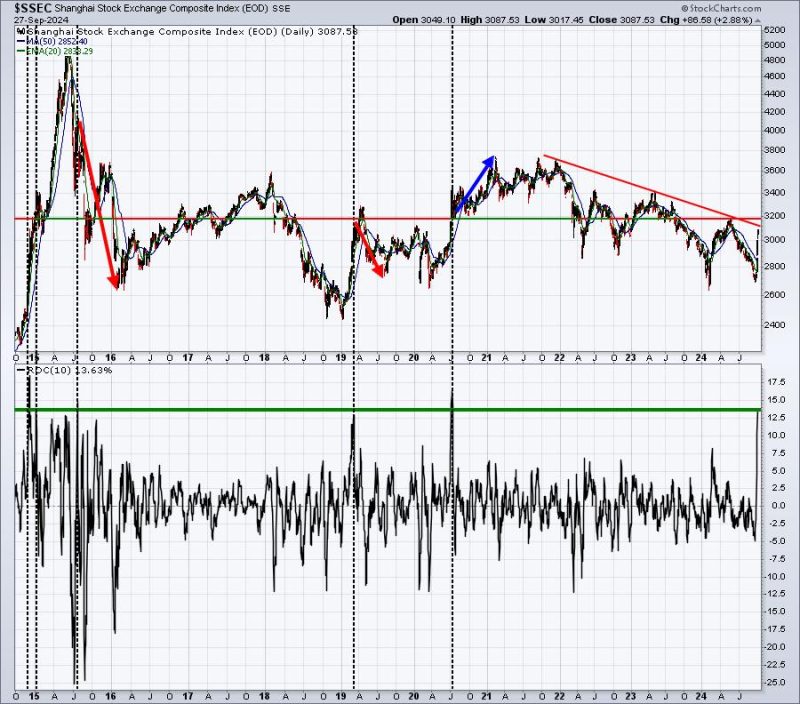China’s strength in the markets last week has brought about speculation and interest from investors around the world. The surge in Chinese stocks, particularly within the technology sector, has pundits questioning whether this positive momentum can be maintained in the long run. The economic landscape of China has been a topic of significant discussion, especially with the ongoing trade tensions with the United States and the global ramifications it has.
One key factor that played a crucial role in the recent rise of Chinese stocks was the announcement by the People’s Bank of China to cut the reserve requirement ratio for banks, injecting more liquidity into the system. This move was seen as a proactive measure to counter any potential economic downturns and stimulate growth. Many investors responded positively to this development, leading to a rally in the stock market.
Moreover, the positive sentiment was further fueled by the news of potential progress in the US-China trade negotiations. Reports of both sides working towards a partial trade deal created optimism among investors, as it could potentially alleviate some of the uncertainties that have been weighing on the global economy. The prospect of a resolution to the trade dispute between the world’s two largest economies is undoubtedly a significant factor that could support the sustainability of China’s market growth.
However, despite the recent surge and the positive news coming out of China, there are still underlying challenges that could affect the long-term sustainability of this growth. The Chinese economy has been under pressure due to slowing growth rates, a high level of corporate debt, and ongoing trade tensions. These factors present significant risks that could dampen investor confidence and hinder the upward trajectory of the market.
Another aspect to consider is the impact of geopolitical tensions on the Chinese market. With issues such as the protests in Hong Kong and the global economic slowdown, there is a level of uncertainty that could potentially disrupt the positive momentum that has been building. Any escalation in these conflicts could have a detrimental effect on investor sentiment and market stability.
In conclusion, while the recent strength in the Chinese markets has been impressive, the sustainability of this growth will depend on various factors such as economic policies, trade negotiations, and geopolitical developments. Investors should closely monitor the evolving situation in China and assess the risks involved. Only time will tell whether this positive momentum can be maintained in the long run or if challenges will arise that could derail the progress that has been made.


























